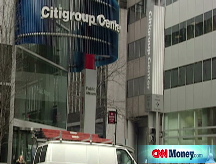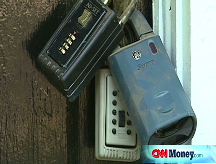$275 billion in tax cuts - House plan
Key committee details the Democrats' proposals for the economic recovery package. More than half is a break for workers.
NEW YORK (CNNMoney.com) -- House Democrats on Friday introduced the tax portion of their proposed $825 billion economic recovery package.
The House Ways and Means Committee, which writes tax policy, released a 328-page bill outlining $275 billion in tax breaks. On Thursday, the House Appropriations Committee released a bill that covers the $550 billion spending piece of it.
The two bills, which make up the American Recovery and Reinvestment bill, will be reviewed and amended starting next week as they work their way through the House and Senate.
"The critical state of our economy calls for swift, comprehensive action and this package will provide relief to all communities and all sectors of the American economy," said Ways and Means Chairman Charles Rangel, D-N.Y.
Roughly $145 billion of the tax bill would be allocated for a tax cut for low- and middle-income workers.
The Make Work Pay Credit, which was a centerpiece of President-elect Barack Obama's campaign, would be worth $500 a year for individuals and $1,000 for couples.
The full credit would be available for 2009 and 2010 but is limited to those making $75,000 or less ($150,000 or less for workers filing joint returns).
The credit could be paid to workers in one of two ways: through their paychecks or through their federal tax return.
The Make Work Pay Credit also would be refundable, meaning that even tax filers without any tax liability -- typically very low-income workers -- would receive one.
Other breaks in the bill that would benefit individuals are an expansion of the Earned Income Tax Credit, which is a refundable credit for low-income workers, and an increase in the refundable portion of the child tax credit.
The bill would also remove the requirement that first-time home buyers repay a new credit worth up to $7,500 that they may claim on their federal tax return for buying a home between Jan. 2, 2009, and July 1, 2009.
The bill contains a host of business tax breaks, including some but not all the ones that Republicans have been pushing for.
One that is included in the bill is a temporary broadening of the "net-operating loss carryback" to five years, up from two years currently. The provision would let companies apply their 2008 and 2009 losses to past and future tax bills so they can get money back on taxes they've already paid or would otherwise have to pay.
But the carryback extension will not be available to institutions in which Uncle Sam has taken an equity stake or received the right to take an equity stake under the Troubled Asset Relief Program.
The NOL provision is estimated to cost $17 billion over 10 years.
In addition, the bill offers a host of renewable energy tax credits worth approximately $20 billion.
For small business owners, the bill would increase the amount of expenses that can be written off for capital expenditures made in 2009 to $250,000, up from $125,000 currently.
Obama, who takes office on Tuesday, has called the recovery plan central to stemming what has become the worst economic crisis in decades.
It is expected that the final package will be in the $800 billion range and include a mix of spending provisions and tax cuts.
But Republicans in the House have made clear that they would prefer a recovery package that leans more heavily toward tax cuts for businesses and individuals.
House Republican leader John Boehner, R-Ohio, has said the spending portion will neither create jobs nor stimulate the economy.
"If we're going to help American families and small businesses, we need to leave more money in their hands, tax less, let them make good decisions with what they can do with more of their own money to create jobs and keep jobs," he said on PBS' NewsHour Thursday. ![]()



